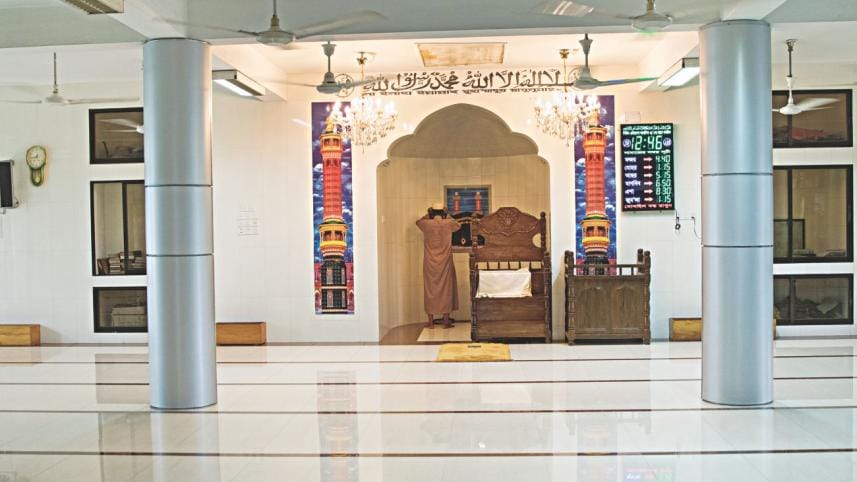The spirit of adhan

The Bosporus was shimmering in all its glory under the ripe full moon. On the other side, the monumental Blue Mosque stood with immense grandeur. Sitting in that rooftop restaurant at Istanbul that unforgettable night, I was taking in the overpowering beauty around me. And just when I thought it was overwhelming already, the mosque came alive with adhan:
"Allah is the Greatest... I bear witness that there is none worthy of worship except Allah... I bear witness that Muhammad is the Messenger of Allah."
The beautiful melody reinforced the beauty and ambience around me, stirring up my emotions further.
The adhan, or the call to prayer, is a beautiful reminder a Muslim may hear five times a day. It is a reassertion of my God, of His last messenger, and my duty (of salah) as a follower.
I shut my eyes and listened to the magnificent melody and the soothing words it carried.
The tune and the repetition of many of the verses in an adhan perhaps make it even more magnificent.
That night in Istanbul, the adhan probably sounded so special to me because I had heard one after many months.
When I was in Bangladesh, I have to admit, I often unknowingly took adhan for granted. It was only after I moved to a city where adhan was not given through loud speakers that I realised how much it meant to me.
But the Istanbul vacation refreshed my soul by hearing the adhan again. The muezzin continued:
"Come to Prayer... Come to success..."
An adhan is an invitation to prayer; a practical tool.
Sahih al-Bukhari's Book of Adhan narrates its origin: "When the Muslims arrived at Medina, they used to assemble for the prayer, and used to guess the time for it. During those days, the practice of Adhan for the prayers had not been introduced yet. Once they discussed this problem regarding the call for prayer."
The use of fire and the bell were considered, the book says. But instead, we eventually have been gifted with this soulful set of words.
The muezzin, through his invitation, speaks to us. He not only announces the oneness of God, but also urges us to pray to Him.
For Fajr, the early morning prayer, he gives us an additional nudge:
"Prayer is better than sleep..."
This part reminds me of my childhood days in Chattogram. During Ramadan, when the meal of sehri had been done with, I used to stand in the open terrace facing the hills where I played in daytime.
With the silence of the last hour of darkness and in the bitter cold, the adhans given from the several mosques in the neighbourhood and even those relatively far off, used to collectively create a mystical symphony - which moved me to remain awake for some time and perform the Fajr prayer.
Indeed, adhan is moving. Perhaps especially when one listens to it intently, it does not fail to strike a spiritual chord.
After all, many of us had our first experience of adhan very early in life — one we do not have any conscious memory of — owing to the custom of reciting adhan to a new-born baby.
Our relationship with adhan, therefore, may start very early.
I carried that relationship in my heart — sometimes knowingly and passionately, sometimes unknowingly and lightly — throughout the years and in my travels.
In Istanbul, for example, where I relished in the immense beauty of the Bosporus that Allah had endowed it with that night, whilst listening to the mystical sound of adhan coming from Blue Mosque:
"Allah is the Greatest... There is none worthy of worship except Allah."
The adhan was over; an invitation made. I headed towards the mosque.
It was time for Isha prayer.
Photo: Sazzad Ibne Sayed/LS Archive



 For all latest news, follow The Daily Star's Google News channel.
For all latest news, follow The Daily Star's Google News channel.
Comments